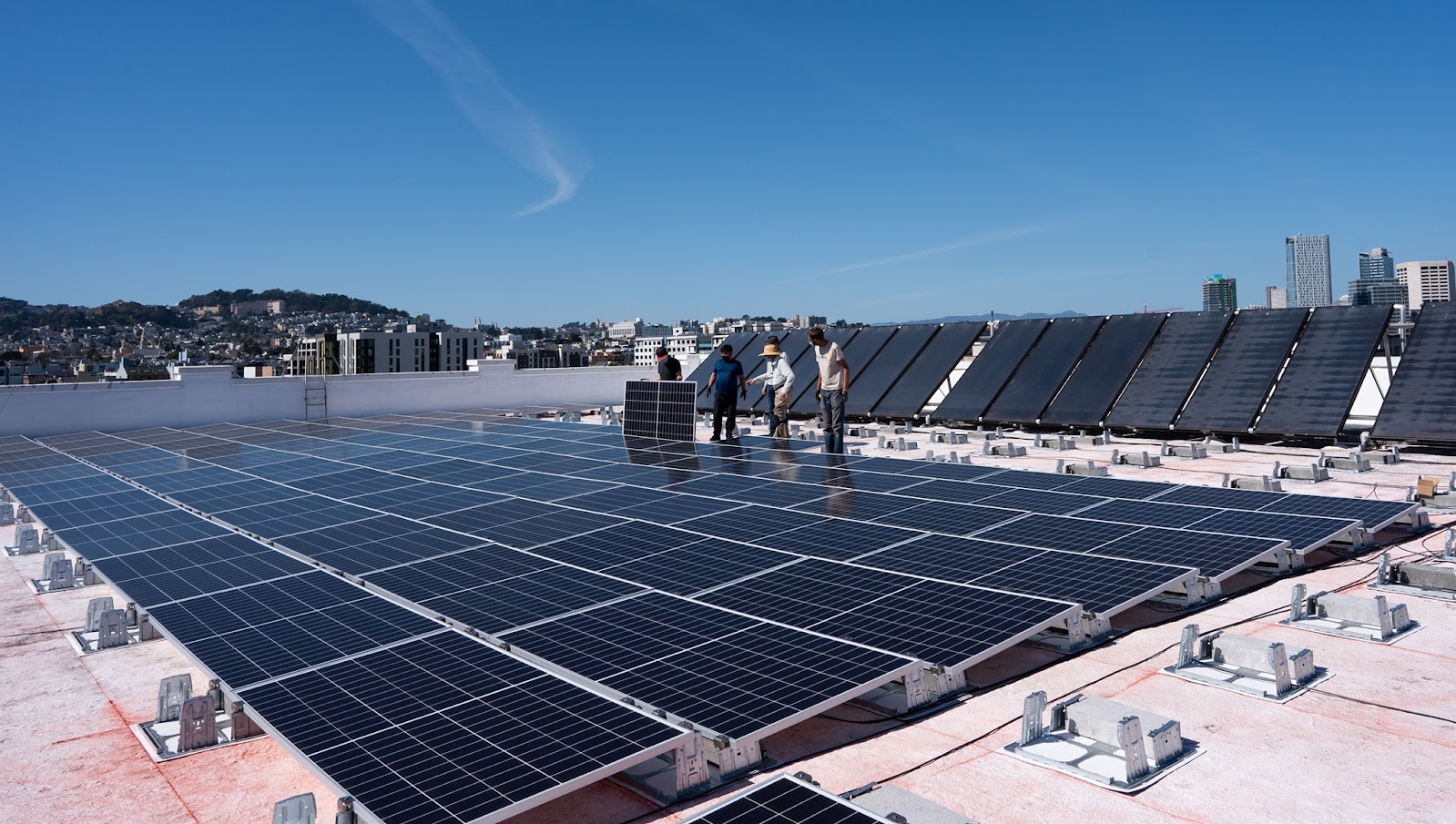RE-volv Solar Empowers Neglected Communities
By Rebecca Shipman, [email protected]

Andreas Karelas was confronted by the reality that communities of color bear the brunt of environmental inequalities in an Environmental Injustices class at American University in the early 2000s. Mr. Karelas was struck by the realization the US was fighting a devastating war in the Middle East that was, in large part, dictated by America’s oil interests. Witnessing the direct and indirect effects non-renewable energy had on the world led Mr. Karelas to explore what he could do to counter the effects of climate change. Mr. Karelas often returns to a question posed in 2005 by American political commentator, Van Jones: “As the new green economy springs to life, will we live in eco-equity or eco-apartheid?”
In the sixteen years since this question was asked, the communities that have benefited from green solutions have been overwhelmingly white, leaving low-income and communities of color in environmentally perilous situations and with larger economic burdens. A 2019 study found African American communities have 70% fewer rooftop solar panels in their communities than any other group.
Mr. Karelas founded RE-volv Solar in 2011 to uplift underserved communities by providing sustainable financial models for the installation of solar panels for nonprofit organizations. Compared to other companies which finance solar projects for commercial businesses, RE-volv focuses on non-profits, such as churches, Boys and Girls Clubs, YMCAs, and homeless shelters. These organizations generally occupy smaller buildings and often cannot easily demonstrate financial credibility. Without the upfront capital to initiate projects they are usually overlooked as suitable candidates for solar. Most do not pay taxes—making them ineligible for the Federal Investment Tax Benefit.
Working with RE-volv allows organizations to go solar for zero down which allows them to benefit from an average of 15% solar savings on energy bills. Working with hubs of community life allows for RE-volv to generate what Mr. Karelas refers to as “the solar ripple effect”, which is based on the observation that when one building in a neighborhood goes solar, others in that area are more likely to as well.
RE-volv’s model removes barriers to financing solar for nonprofits, provides education on clean energy, and trains the next generation of climate leaders. To reach the communities that would benefit most from a transition to solar energy, RE-volv created the Solar Ambassador Fellowship Program.
Active in 10 states, this program provides volunteers with education and tools to go into their local community and identify non-profits that would benefit from RE-volv’s services, and engage and educate community members on the benefits and power of solar energy. After identifying likely organizations, the Ambassadors work with local distributors and installers to determine each building’s energy usage and what would work best with its structure.
RE-volv initially pays the distributor for the installation, and as the non-profit sees the long-term financial benefits of renewable energy, they pay RE-volv back and this money is reinvested for another project. In RE-volv’s early years, the projects were crowd-funded, however, as the movement becomes larger RE-volv is beginning to use recoverable grants, similar to a loan with low-interest rates, from foundations or individuals with donor advised funds.
Looking to the future, Mr. Karelas is eager to share the multi-layered benefits of a solar economy, including monetary savings, jobs, and improved quality of life. Read Mr. Karelas’ book, Climate Courage to learn more about how to get involved with RE-volv’s efforts and other groups Mr. Karelas has worked with in the movement, including Green The Church.

